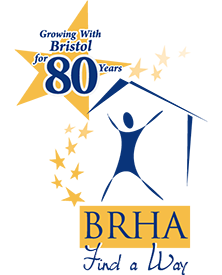Your neighbors support affordable housing more than you might think.
By HousingForward Virginia on Jun 16, 2021 03:29 pm
Recent public opinion polls of Virginians reveal broad agreement on two things: first, housing affordability is a problem; and more importantly, policymakers need to address it with robust solutions. In fact, the share of Virginians who support public action on housing is larger than the shares of Americans who see the government as responsible for health insurance, high-speed internet, or college education.
In 2017, a Christopher Newport University poll found that the vast majority of respondents support the preservation of Virginia’s Housing Trust Fund (78%), as well as its use specifically to address homelessness (80.3%) and its expansion to assist in the costs of aging-in-place modifications (87%). Finally, the majority of respondents agreed that having an adequate supply of housing options in their community is important to them and that people working in their community should be able to afford to live there.
Smaller majorities of respondents agreed that affordability contributes to the economic success of their community; that ending homelessness should be an important government priority; and that local and state governments should work to provide housing opportunities for families whose incomes are a barrier to quality housing. A majority also reported that they are more likely to support a candidate for political office who makes housing affordability a priority.
A 2019 Virginia Commonwealth University poll revealed a dissonance between perceptions of housing affordability locally in Virginia and perceptions of housing affordability elsewhere in the country. While 78% of the Virginians surveyed reported seeing housing affordability as a problem in America today, just 57% reported seeing it as a problem where they live, and only 33% viewed it as a very serious problem. Responses varied regionally, with the South Central region having the largest share of respondents agreeing that it is a very serious problem where they live.
In addition to spatial unevenness, perceptions of housing affordability were racialized, with a significantly smaller share of white respondents than that of non-white respondents seeing it as a very serious problem where they live. Those with higher educational attainment also were less likely to see it as a very serious problem. Additionally, a majority of Democrats and Independents agreed that housing affordability is a very serious problem, compared to just under a third of Republicans.
There were also stark disparities in experiences of both housing stability and housing cost burdens along racial and class lines across Virginia.
The poll also included questions on homeownership affordability in particular. Of the 41% of those surveyed who rent or live with their parents or in some other arrangement, 70% said they aspire to own a home. The main barriers to homeownership reported by respondents were limited options within their budget (22%), a poor credit history (18%), lack of down payment (15%), and existing debt (11%). The results reflect the racial gap in homeownership that persists across the country: two-thirds of white respondents owned their home, compared to 49% of nonwhite respondents.
While these pollspredate the COVID-19 pandemic, nationwide pollsconducted during the pandemic suggest only increasing support for public investment in affordable housing, and not just for immediate COVID-related interventions. Indeed, a national public opinion poll commissioned by the Opportunity Starts at Home campaign in June 2020 found that 86% of respondents “agree that the pandemic has demonstrated that the government needs to invest more in affordable housing over the long term.”
In short, the COVID-19 pandemic and its ensuing economic crisis have amplified issues of housing affordability and stability that pervaded the state and country long before 2020. As we near a post-pandemic future, perhaps new polling of Virginians would enable us to see just how much affordable housing issues have moved up on the public agenda across the Commonwealth.
The post The FWD: Housing Wins the Popularity Contest appeared first on HousingForward Virginia.
by Leah Demarest, H.B. 854 Research Analyst at HousingForward and recent graduate of the Masters in Urban and Regional Planning program at VCU

